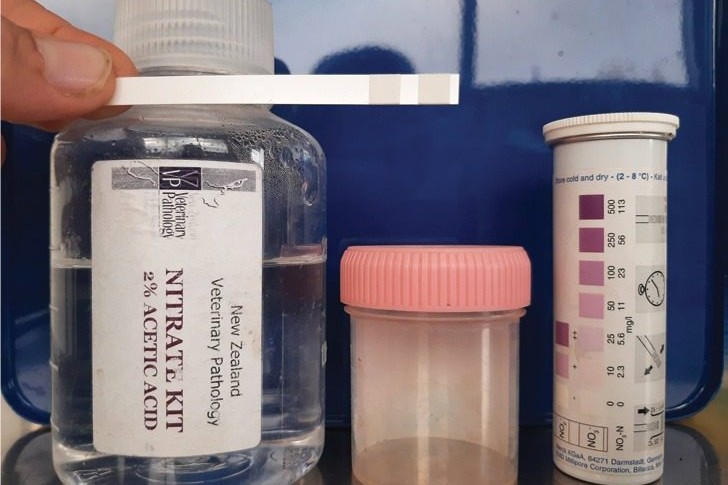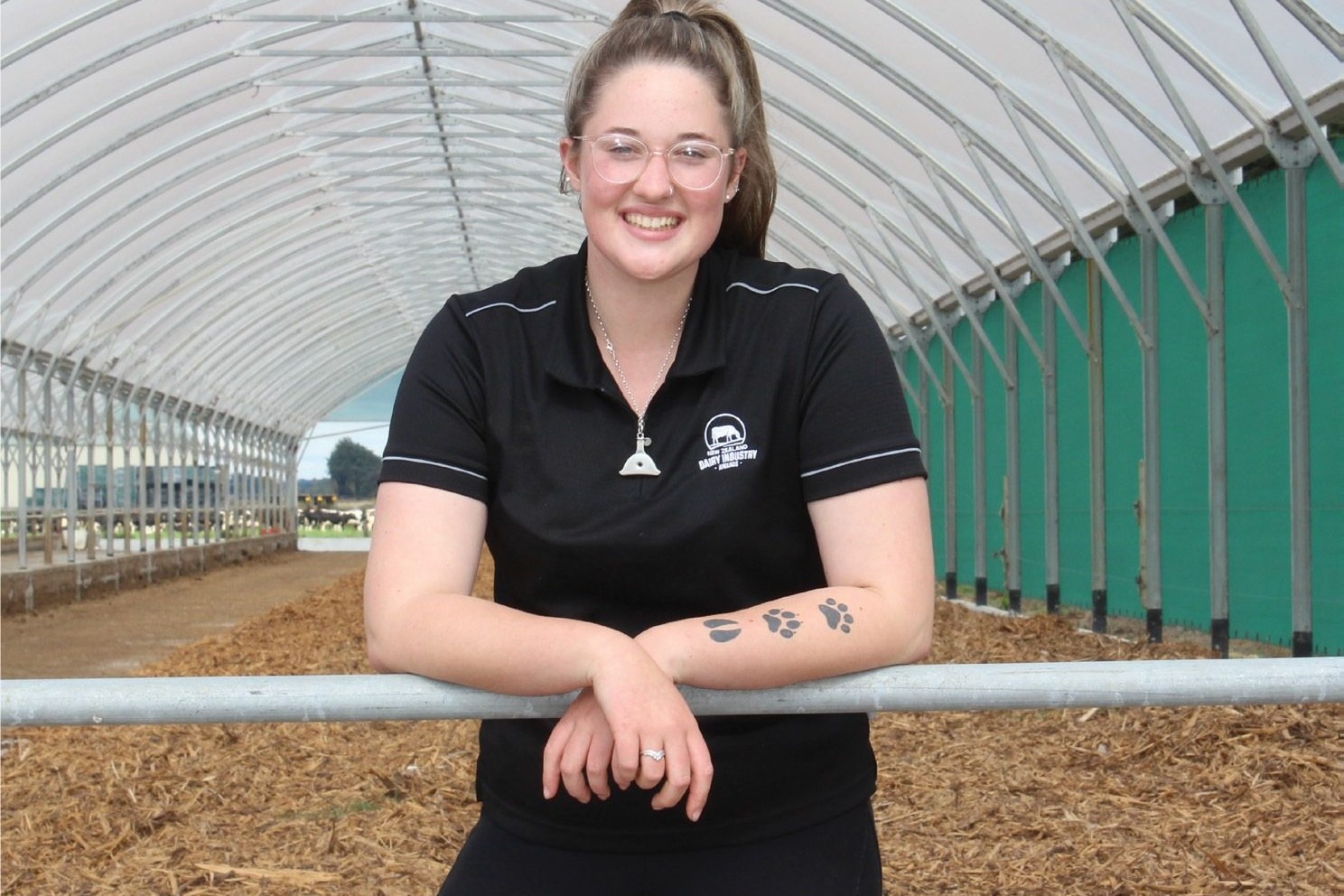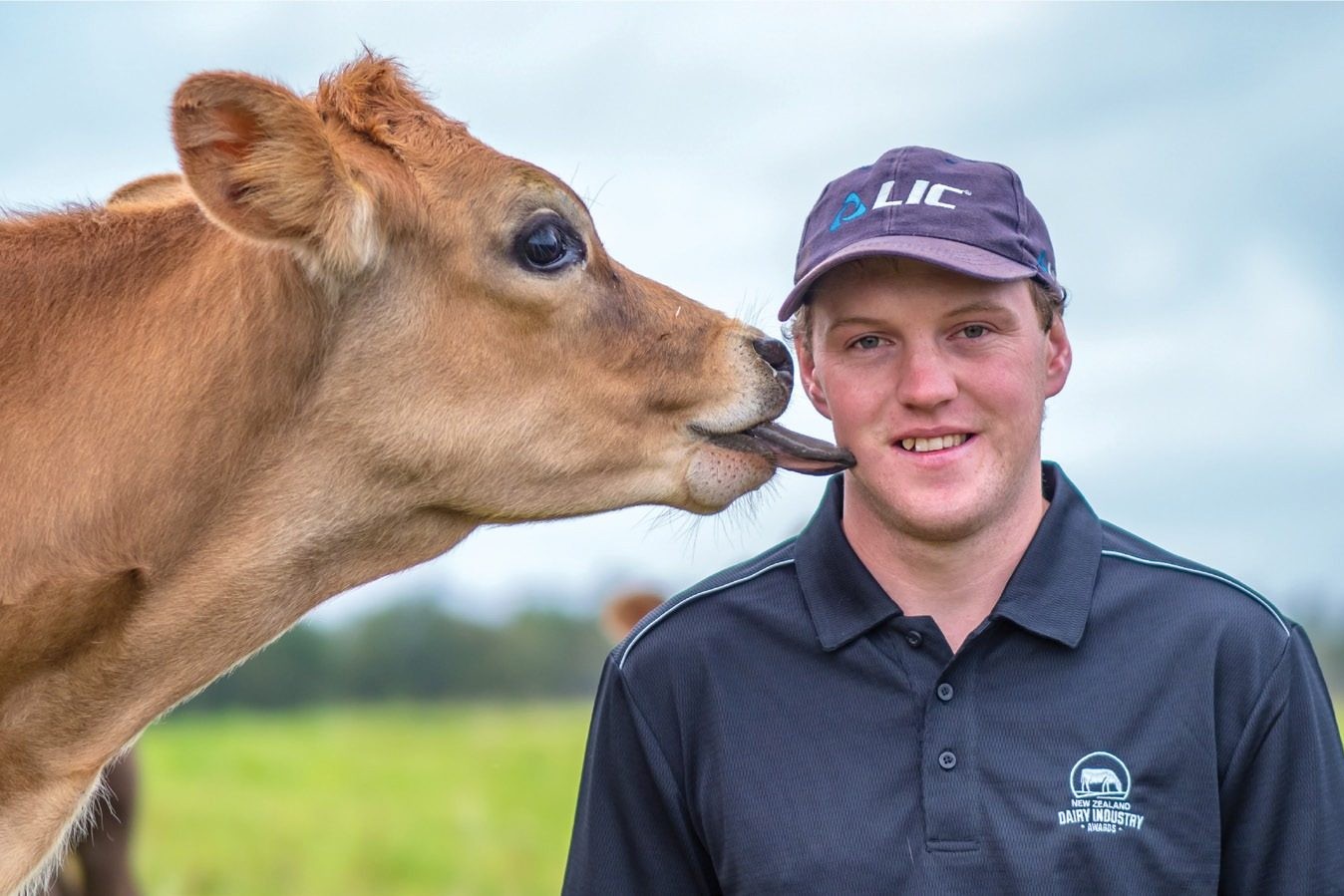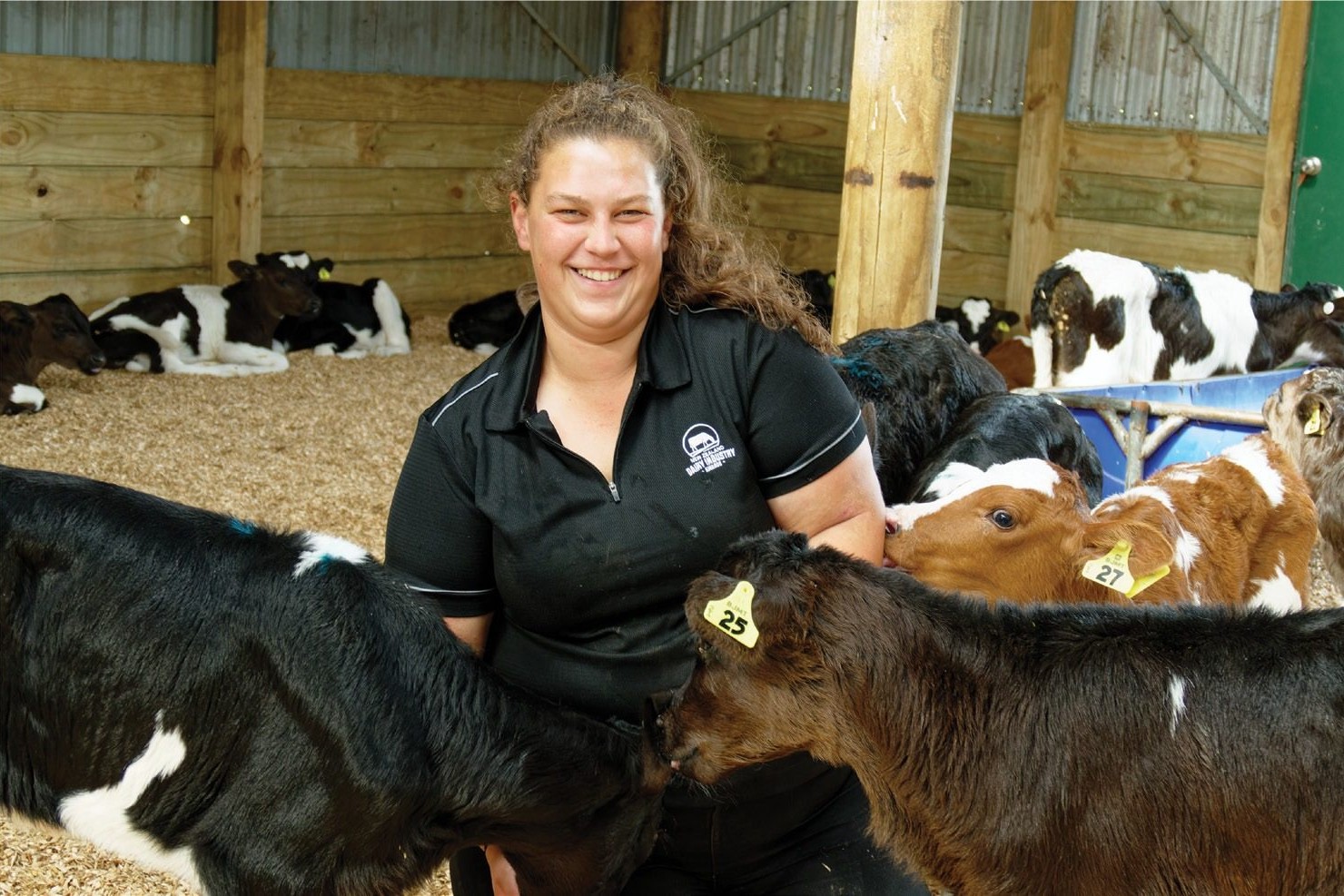Words by Jackie Harrigan, photo by Brad Hanson
After a difficult year in 2020, 2021 is already looking up for Manawatu DIA Dairy Manager of the Year winner Karl Wood.
At the start of last year, Karl and his partner Jess Hodges decided to end their two years of gaining large-herd dairy experience in Canterbury.
Two years earlier they had shifted to a 1000-cow irrigated farm up the river from Rakaia to learn about dairying on a large scale, and while they loved it and learned a lot, they decided to come home when Karl’s mother was undergoing surgery and his father needed help on the home farm, Northbrook Enterprises Ltd, a 115ha, 290-cow property close to Palmerston North.
But on the cusp of the Covid lockdown when they were holidaying in the deep south and due to catch a ferry later that week, they realised they had to move fast to get home before lockdown.
A quick trip back to Rakaia from Wanaka, a super-quick packup and two hours sleep followed by a seven hour drive to Nelson and a helicopter ride to Wellington, with their two dogs riding on the skids, got them home just in time for lockdown – and they had to go back later to retrieve their car, cats and belongings.
“It was really stressful but we were so glad to be home, because my dad had an accident a couple of months later and Jess had surgery too – so it was great we were home and able to help out the family.”
We are family
Karl’s sister Anja also works on the family farm and Milking Shorthorn stud, along with the large 240ha runoff that supports all the 300 reared calves, after a policy shift to no bobbies. Karl believes the large support block provides different options and is a strength of the business. “It takes the pressure off the dairy platform and gives the ability to graze off cows if needed, and harvest grass supplement.”
“The fact we rear all our calves, with no bobbies, is also a strength as it provides extra income for the business during low pay-out times.”
This season they have bred all of the poorer cows to beef semen – including Charolais, Speckle Park, Angus and Hereford.
“I have always been keen on different breeds – and although we will always have pedigree Shorthorn and pedigree Friesians on the property, I have crossed some Shorthorns with Guernsey to fine them up and I have been looking at the Montbéliarde breed also.”
“I like a licorice allsorts herd – I think all the breeds bring different traits to the mix and I am keen to see what they all do.”
The crossbred beef calves find a ready market in the surrounding lifestyle block owners, who Karl says are always looking for a couple of cute pets or beefies for the freezer. The Canterbury experience was great for sharpening up his pasture management and 26-year-old Karl says he valued his time as second in charge (2IC), learning about managing and dealing with staff.
“In some ways a larger farm runs easier, because you can have a lot of things going on simultaneously.”
Karl enjoys the peace and calmness of being with the cows at the start of the day “It’s something you can’t replicate,” he says.
“During the hard times, my motivation comes from my family and thinking positively about what has been achieved already.”
Taking charge
Since returning to the Bunnythorpe farm he has made a few changes to policies.
“We decided to milk the 60 first calvers on once a day (OAD) milking for the whole season to grow them out and enhance their reproduction as second calvers. It worked really well, we had only three not-in-calf (5%) in that age group and we only lost 10% of production for them compared with what they would’ve produced on twice a day (TAD).”
“They held their condition really well and have grown on well; it’s something that we would do again,” Karl said.
The OAD cows were milked at 1.30pm, before the main herd on TAD, so it meant less work in the morning when he and Anja were busy milking, picking up calves and then feeding the 300 calves.
The main herd was also put on OAD in late January which Karl says is easier on the cows as they have a long walk on the race up and down hills.
“The cows are holding condition well on 4.3 body condition score (BCS) and so we hope to get a benefit on reproduction for next season.”
“It means we can push the dryoff out slightly too because we have lots of silage cut on the runoff and have a 12.5ha chicory block.”
The six year average for the farm is 95,000kg MS and Karl is looking at reaching 100,000kg MS this season.
Future farming goals include a 50/50 sharemilking role in the next three to five years through building stock numbers and breeding quality cattle. “We have started our own company and bought 25 Friesian heifers into the herd last season – there was an opportunity to borrow against the house Jess and I own and live in in town, and it made sense when the heifer prices were low and interest rates were also low – and now we have 10 replacement heifers from them and have rebred them back to a Milking Shorthorn.”
“Next season we will trade some more cattle, and rear and trade the beef cross calves as weaners or stores – and we are looking for a lease block opportunity.”
Karl identifies a work/life balance as really important and off-farm he enjoys playing football three times a week, attending Young Farmers events as Vice-Chair of the Fitzherbert Club, and playing golf whenever he can. “I enjoy spending time with my partner Jess, and our dogs,” he says. “A work/life balance keeps you mentally fresh and means you can also support your friends.”
Manawatu Dairy Manager Merit Awards
Naylor Lawrence and Associates Most Promising Entrant Award – Joel Peterson
Fitzherbert Rowe Lawyers Employee Engagement Award – Karl Wood
Totally Vets Ltd Leadership Award – Karl Wood
Hopkins Farming Group Feed Management Award – Karl Wood
DeLaval Livestock Management Award – Javier Alejandro Pardo Diaz
Fonterra Dairy Management Award – Karl Wood
MyMilk Power Play Award – Joel Peterson
Westpac Personal Planning and Financial Management Award – Mahraaz Hussein





